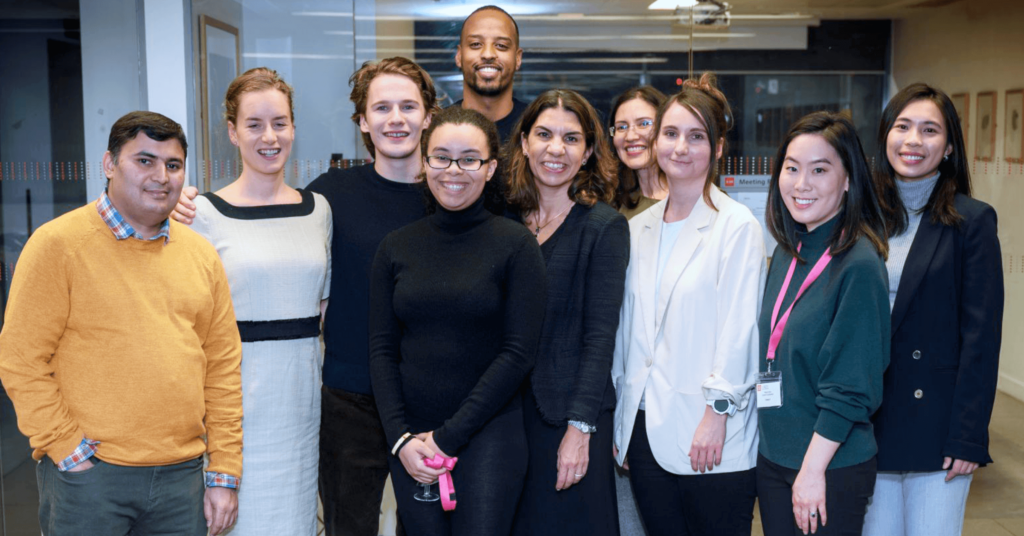
If you’re in the market for a new job, you already know that preparing for an interview is critical. Showing up with the right questions and curiosity can distinguish you from the other candidates. And in today’s competitive job landscape, you need every advantage you can get.
This article will teach you how to prepare for a job interview, with updated tips and tools for 2023.
1. Research the company: Understand work values and culture
First up on the interview preparation checklist is learning more about the companies you apply to – that means doing your research. Now, more than ever, employers value candidates with the necessary skills that align with their work values and company culture. By thoroughly understanding what the company does, you can demonstrate your genuine interest and fit within the organisation. Here are a few tips:
- Explore their website: Study the company to learn about their products, services, and recent news or achievements. Pay attention to their mission statement and core values, and find ways to demonstrate how they align with yours during your interview.
- Check social media and online presence: Browse the company’s social media accounts, LinkedIn profile, and any relevant online publications. Doing so will give you a broader understanding of their industry presence and current initiatives. It may also reveal if you have any connections within the company who can vouch for you, personally or professionally.
- Tap into your network: On that note, reach out to professionals in your network who may have connections to the company or industry. Their insights and experiences can offer valuable information beyond what is publicly available.
Don’t be shy: show what you know about the company’s values and culture when you’re in the interview. Better yet, if their values align with your personal ones, make that known, too.
2. Showcase your skills: The power of an online portfolio
When applying for a job in the creative or tech industry – such as UX design or software engineering – having an online portfolio is a powerful way to demonstrate your skills and provide interviewers with a tangible representation of your work. Interviewers often review candidates’ portfolios ahead of time to gain insights and discuss relevant topics during the interview. Here are a couple of tips to create an impactful online portfolio:
Curate your best work
Carefully select and showcase your most impressive projects, emphasising the skills and expertise that align with the job you’re applying for. Ensure that your portfolio reflects your ability to solve problems and deliver results. It can be tough to do this when just starting your career, so work with what you have: personal projects, university or internship work.
Provide context and explanations
Alongside your portfolio pieces, include descriptions and explanations of the projects, highlighting the challenges you faced and the solutions you implemented. Doing so will help interviewers understand your decision-making process and the impact of your work within a wider project or organisation.
By having a well-curated online portfolio, you demonstrate your skills and expertise, leaving a lasting impression on potential employers. You can have multiple portfolios showcasing different skill sets. For a full-stack developer applying for a backend developer job, it might be helpful to have a separate portfolio showcasing specific pieces of work that support your application rather than everything you’ve ever done.
Is your portfolio looking sparse? Consider investing in an online course or certification that adds to your overall expertise. You can branch out, too – focusing on skills that help you to make better decisions at work. For example, marketing professionals can consider improving their data skills, as it’ll lead to a more holistic understanding of marketing metrics, goals, and business results.
If you already know that you want to build or improve your data skills, take a look at the Data Analytics Career Accelerator from the London School of Economics and Political Science.
3. Effective communication: Active listening and engaging responses
Employers value candidates who actively listen, engage in conversation, and provide thoughtful answers. Here are a few tips to enhance your communication skills during an interview:
- Active listening: Pay close attention to the interviewer’s questions, ensuring you understand them thoroughly before responding. Demonstrate your attentiveness by maintaining eye contact and nodding to show your understanding.
- Conversational and upbeat tone: Maintain a conversational and upbeat tone throughout the interview. Be confident but also genuine and personable – this helps create a positive rapport with the interviewer.
4. Master the STAR method: Tell your story effectively
Employers often ask behavioural-based questions during job interviews to understand how candidates will handle specific situations. The STAR method is one technique for answering these types of questions. Here’s how it works:
- Situation (S): Start by describing the situation or context in which the experience occurred. Provide enough details to help the interviewer understand the background of the situation. Be concise and focus on the key elements relevant to the question.
- Task (T): Clearly explain the task or goal you were trying to achieve in that particular situation. This helps the interviewer understand the purpose and goal of your actions. Emphasise any challenges or obstacles you encountered during the task.
- Action (A): Describe your actions to address the situation and accomplish the task. Highlight your contributions and the steps you took to overcome challenges. Be specific and provide enough details to showcase your skills and abilities. Focus on your problem-solving skills, leadership qualities, and ability to work collaboratively.
- Result (R): Finally, share the outcome or result of your actions. Quantify the results, such as increased sales, improved efficiency, or positive client feedback. Highlight the positive impact of your actions and demonstrate how your contributions made a difference in the overall outcome. If there were any lessons learned or personal growth from the experience, mention that too.
The STAR method lets you structure your answers clearly and concisely, giving the interviewer a well-rounded understanding of your abilities and accomplishments. It helps you stay focused on the relevant details and ensures that your responses are organised and impactful.
5. Technical interview preparation: Practise with a focus
For those in tech, you can expect to flex your technical abilities in dedicated interviews. These evaluations show employers how you navigate technical problems, as well as your breadth of tech skills and tools.
Here are a couple of tips to help you excel:
Study industry-specific interview formats
Different companies and industries may have specific interview formats tailored to their needs. Research standard technical interview formats used by top tech companies in your field and understand the types of questions and problem-solving scenarios they ask.
Practice with a friend or coach
One of the best ways to prepare for technical interviews is through practice sessions with a friend or career coach. Use a whiteboard or coding platform to work through problems together; some online coding platforms even offer practice interview questions.
During practice sessions, take note on how you problem-solve, devise efficient solutions, and communicate your thought process. Remember, technical interviews assess not only your technical skills but also your approach and ability to explain your reasoning.
Prepping for an interview is also the perfect time to work with a career coach. Every learner on our Career Accelerators has access to free 1:1 coaching. Career Coaches help learners at whatever stage they’re at, whether that’s prepping for an interview or setting goals to achieve a promotion.
Go into your interview with confidence
There’s lots of work to be done during the interview process, but what about landing that interview in the first place? That’s where your experience and education really plays a part.
Career Accelerators step beyond simply giving you a set of skills to do a job – they set the foundation for a long and meaningful career. FourthRev partners with world-class universities, tech leaders, and employer partners to ensure you gain the skills companies actually need. A university certificate will immediately set you apart from other job candidates, and it provides the ultimate validation that you’ve got what it takes to succeed.
FourthRev Career Accelerators can also connect you to top employers, helping you get to that interview stage, faster. Take a look at the six-month, online programmes in UX design, product management, and data analytics.



